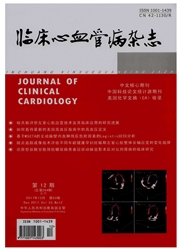

 中文摘要:
中文摘要:
心肌病多伴有心力衰竭和顽固性心律失常甚至心源性猝死(sudden cardiac death,SCD),严重危及患者生命。尽管心肌病动物模型的建立为研究其发病机制和治疗提供了重要依据,但动物的心脏在遗传特征上与人类存在很大差异,不能真实再现人类心肌病的特征。近年来,随着人类体细胞重编程的人类诱导性多能干细胞(human induced pluripotent stem cells, hiPS细胞)研究的深入,可在特定诱导条件下将hiPS细胞转化为心肌细胞,这为体外制备心肌病的特异性细胞模型,探讨其潜在发病机制及优化临床治疗措施提供了一种新方法。
 英文摘要:
英文摘要:
Cardiomyopathies lead to heart failure and refractory arrhythmia ultimately,even sudden cardiac death,and endanger the patients' life seriously.Although the establishment of animal models have provided some important clues to study pathogenesis and therapies of the cardiomyopathies,but the heart of animals,which can't reproduce the individualized characteristics of cardiomyopathies actually,exists very big differences in genetic traits compared with human's.In recent years,with the further study of human induced pluripotent stem cell reprogrammed by human somatic cells,hiPS cells can be translated into cardiomyocytes in specific induction conditions,which have provided a new method to the preparation of specific cell models in vitro for analyzing the potential pathogenesis of cardiomyopathies and optimizing its clinical treatments.
 同期刊论文项目
同期刊论文项目
 同项目期刊论文
同项目期刊论文
 期刊信息
期刊信息
